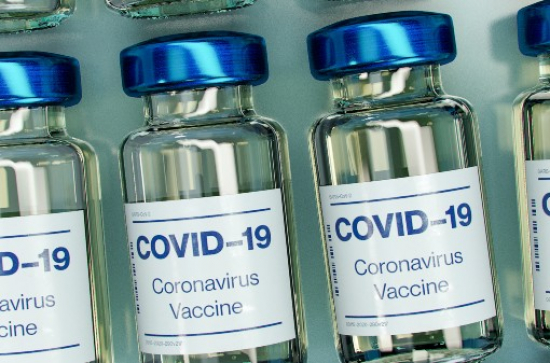
A newly published Maynooth University-led study on vaccine hesitancy in the United States has found that public trust and willingness to vaccinate increased significantly in early 2021.
Vaccine hesitancy dropped by more than 10 percentage points, running at 46% in October 2020 but decreasing to 35.2% by March 2021, according to the research, which was published in The Journal of the American Medical Association.
The study, led by Dr Michael Daly, of the Department of Psychology at Maynooth University, observed the largest decline in vaccine hesitancy among Black and Hispanic participants. Black participants showed a significant 20.9 percentage point decrease in vaccine hesitancy, (from 63.9% to 43%). There was a decline of almost 16 percentage points among Hispanic participants (from 52.3% to 36.5%).
Speaking about the findings, Dr Michael Daly said: “This decrease is important because Covid-19 vaccine acceptance has been particularly low among these groups, who have experienced a disproportionate burden of severe illness and death because of Covid-19.”
A separate study at Maynooth University, led by a colleague at the Department of Psychology, Dr Philip Hyland, and funded by the Health Research Board, found a similar trend in hesitancy in Ireland. This ongoing research, based on a nationally representative sample of Irish adults, found vaccine hesitancy was over 44% in August 2020, but decreased to 23.9% in the most recent follow-up wave of the study in late-March/early-April 2021. At this time just 7.4% of 1,110 adults surveyed indicated they did not intend to be vaccinated against COVID-19.
Commenting on the findings, Dr Daly said: "We are now seeing positive trends in vaccine hesitancy across several countries including Ireland, where hesitancy appears to have declined sharply and is lower than in the US."
In the US, reduced hesitancy occurred in tandem with the regulatory approval of Covid-19 vaccines and rollout of mass vaccination programmes, and this decline was accompanied by an increase in public trust in vaccine development and the Covid-19 vaccine approval process.
However, the report also cautions that despite gains in the US, vaccine hesitancy remained high in March 2021, especially among young adults and Black and low socioeconomic status participants. In the US in March 2021, hesitancy was high among adults aged 18-39 years (44.1%); those without a degree (42.9%); and households earning $50 000 or less (43.7%).
“While strong gains have been made, further steps are now needed to build public trust, extend outreach and educational programs, and increase vaccination opportunities to ensure high levels of vaccination uptake,” Daly recommends.
About the Survey:
In total, 7,420 participants provided 42,154 survey responses for the survey titled: ‘Public Trust and Willingness to Vaccinate against Covid-19 in the US from October 14, 2020, to March 29, 2021’. Participants who indicated they were unsure or somewhat/very unlikely to be vaccinated were categorised as hesitant.
The participants were from seven waves of the probability-based Understanding America Study (UAS). The survey was conducted by Dr Michael Daly, Department of Psychology, Maynooth University; Dr Andrew Jones, University of Liverpool, and Dr Eric Robinson, Institute of Population Health Sciences, University of Liverpool. Further information on the survey results and methodology is available here.
